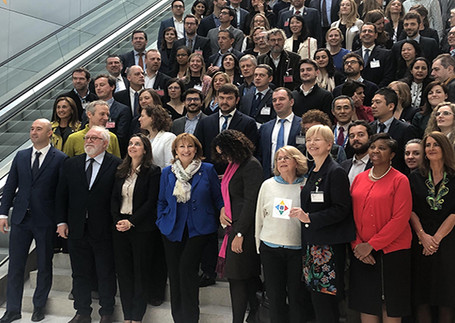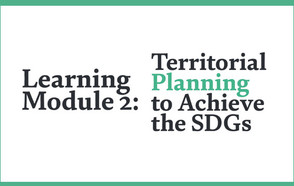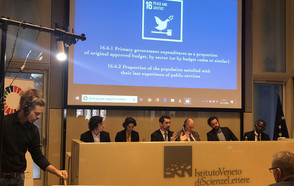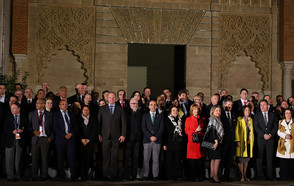
On March 7, 2019, UCLG participated to the first OECD Roundtable on Cities and Regions for the Sustainable Development Goals (SDGs).
During the all-day meeting, local and regional governments, as well as partner institutions were invited to share their assessment on the progress made and current challenges in achieving the SDGs. The unprecedented level of urbanization in developing regions and the universality of the 2030 Agenda urge participants to accelerate towards the paradigm shift underpinning SDGs Localization. As a key take away, cities and regions highlighted that the strategic vision of the agenda was not one of 17 thematic achievements, but rather an integrated and universal rights-based agenda.
Emilia Saiz, Secretary General of UCLG, emphasized that the commitment of local and regional governments to sustainable development was intrinsically linked with their daily responsibilities towards the communities they served. However, the type of transformation that is needed to actually achieve the Global Goals requires an unprecedented level of action, which no single level of government can face alone.
Together with participants, UCLG congratulated the OECD for promoting the work done by local and regional governments with the support of their networks and associations. In this respect, Emilia Saiz called upon international organizations to open multi-level national dialogues between all spheres of government. Cities and regions are progressively acknowledged as protagonists of sustainable development, yet regional and local governments must be acknowledged as elected decision-makers instead of mere implementers of thematic priorities decided by other tiers of government.
According to the second report of the Global Taskforce of Local and Regional Government to the 2018 High Level Political Forum (HLPF), subnational governments are involved in the national coordination and follow-up bodies of only 39 countries out of the 102 country volunteers to report to the HLPF since 2016, and often at consultative level rather than strategic decision-making. She further emphasized that the ownership of the 2030 Agenda could only be promoted by ensuring that it is understood as a rights-based agenda to be conquered by all in a joint quest for a better world.
Participants also highlighted the lack of tailored indicators to monitor progress in SDG localization and tools to communicate with the citizens, civil society and private sector. In an optimistic tone, participants showed that these challenges are an opportunity for creativity. Local government associations and their members are working together on a voluntary basis to locally assess their performance. This process is an opportunity to build alliances with all stakeholders and better communicate with citizens to co-create a sustainable future.













